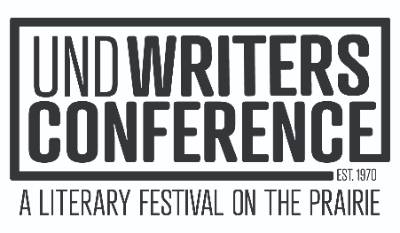"Makers & Machines" Reading List
The 56th Annual UND Writers Conference, "Makers & Machines," features works by nationally and internationally recognized creative writers, whose work explores how we make and create art against the backdrops of traditional and new technologies alike.
Books by this year's Writers Conference authors will be available for purchase at the conference, sold by the UND Bookstore. Books will also be available for checkout by UND faculty, staff, and students at the Chester Fritz Library, and by community members at the Grand Forks Public Library.
Books by Lisa Ko
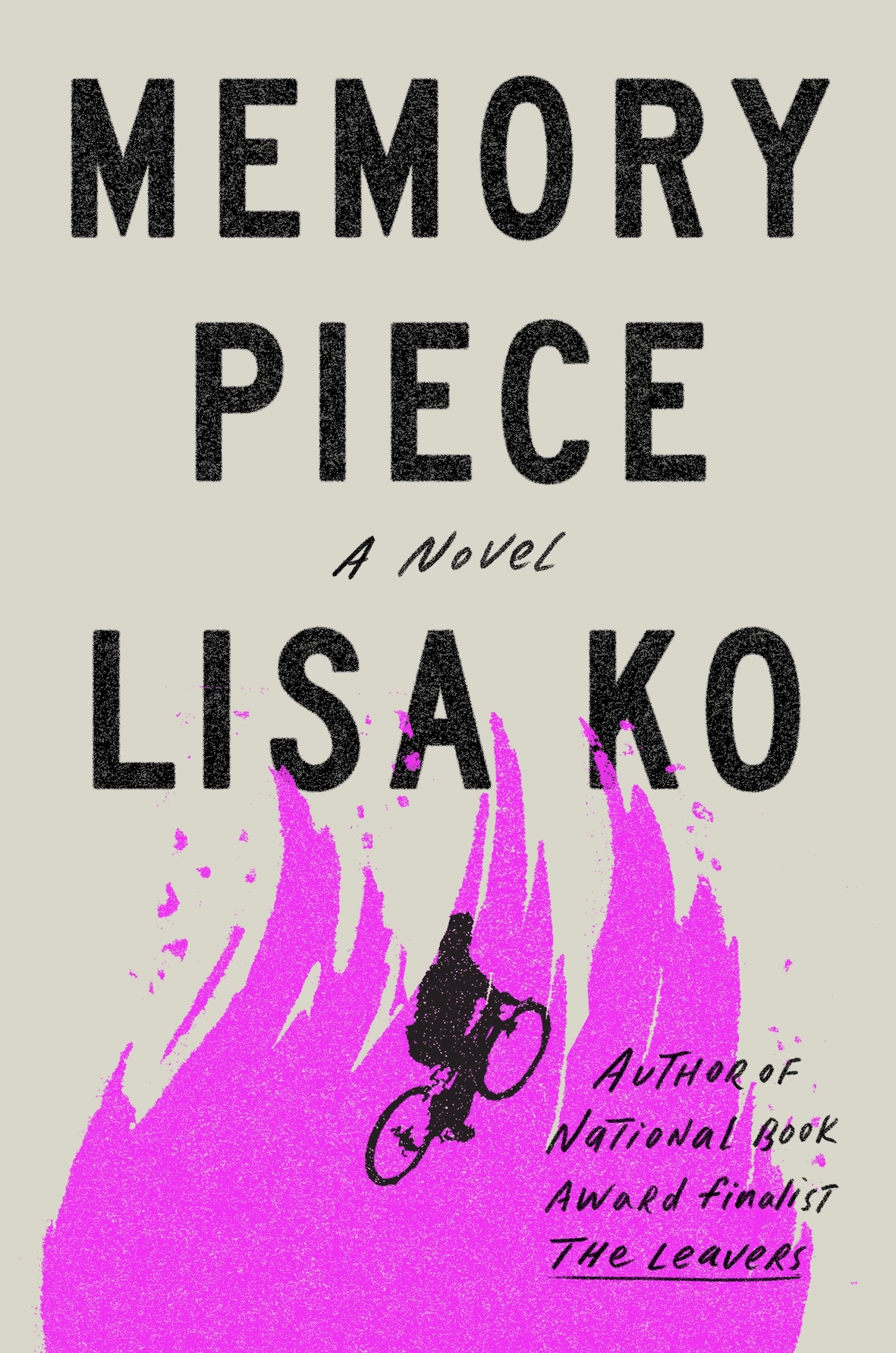
One of Time's Must-Read Books of 2024. The award-winning author of The Leavers offers a visionary novel of friendship, art, and ambition that asks: What is the value of a meaningful life?
In the early 1980s, Giselle Chin, Jackie Ong, and Ellen Ng are three teenagers drawn together by their shared sense of alienation and desire for something different. "Allied in the weirdest parts of themselves," they envision each other as artistic collaborators and embark on a future defined by freedom and creativity.
By the time they are adults, their dreams are murkier. As a performance artist, Giselle must navigate an elite social world she never conceived of. As a coder thrilled by the internet's early egalitarian promise, Jackie must contend with its more sinister shift toward monetization and surveillance. And as a community activist, Ellen confronts the increasing gentrification and policing overwhelming her New York City neighborhood. Over time their friendship matures and changes, their definitions of success become complicated, and their sense of what matters evolves.
Moving from the predigital 1980s to the art and tech subcultures of the 1990s to a strikingly imagined portrait of the 2040s, Memory Piece is an innovative and audacious story of three lifelong friends as they strive to build satisfying lives in a world that turns out to be radically different from the one they were promised.
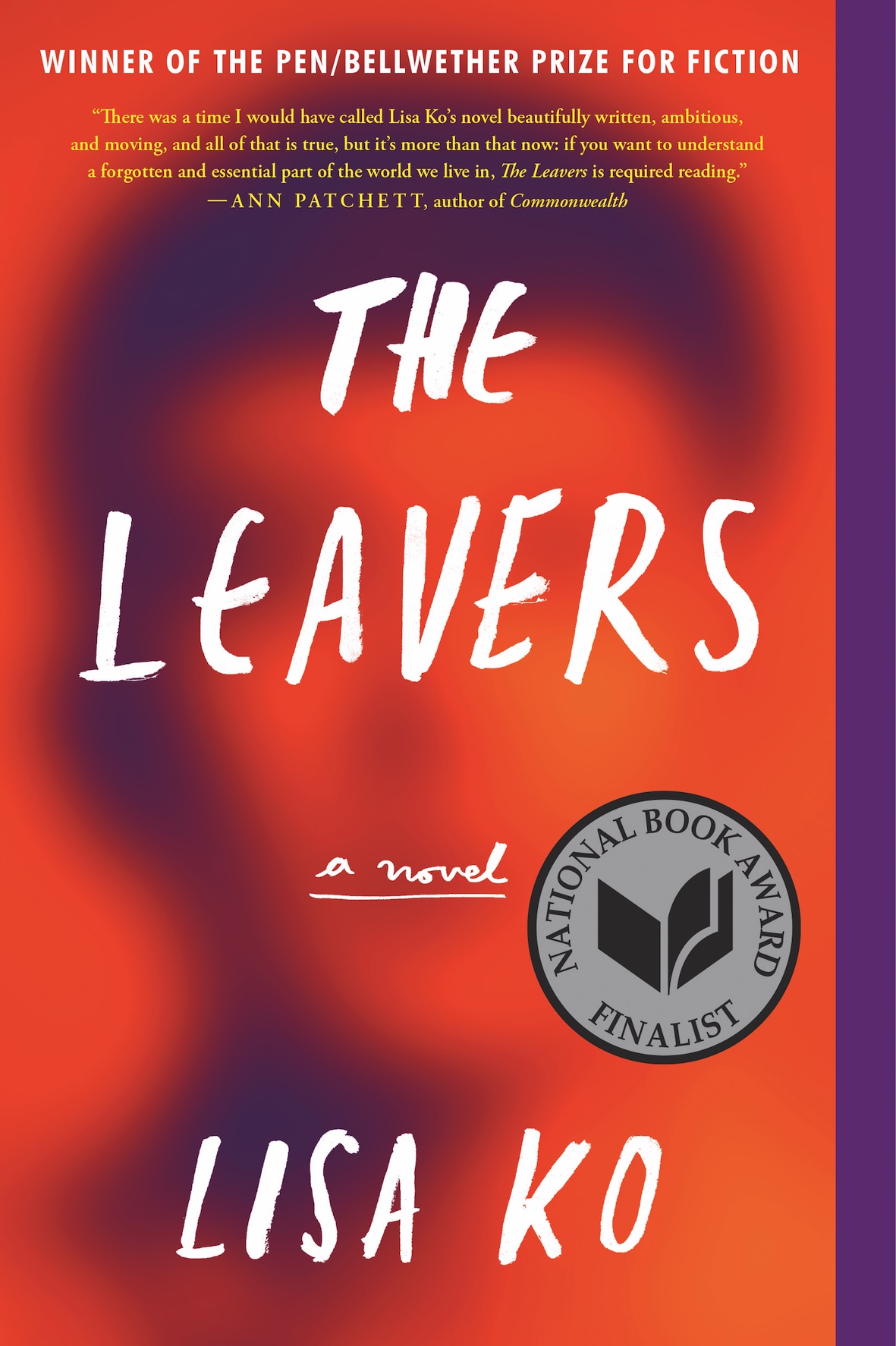
Finalist for the National Book Award in Fiction. One morning, Deming Guo's mother, Polly, an undocumented Chinese immigrant, goes to her job at a nail salon—and never comes home. No one can find any trace of her.
With his mother gone, eleven-year-old Deming is left mystified and bereft. Eventually adopted by a pair of well-meaning white professors, Deming is moved from the Bronx to a small town upstate and renamed Daniel Wilkinson. But far from all he's ever known, Daniel struggles to reconcile his adoptive parents' desire that he assimilate with his memories of his mother and the community he left behind.
Told from the perspective of both Daniel—as he grows into a directionless young man—and Polly, Ko's novel gives us one of fiction's most singular mothers. Loving and selfish, determined and frightened, Polly is forced to make one heartwrenching choice after another.
Set in New York and China, Lisa Ko's The Leavers shares a vivid examination of borders and belonging, which earned it the 2016 PEN/Bellwether Prize for Fiction, awarded by Barbara Kingsolver for a novel that addresses issues of social justice.
Books by Kristen Radtke
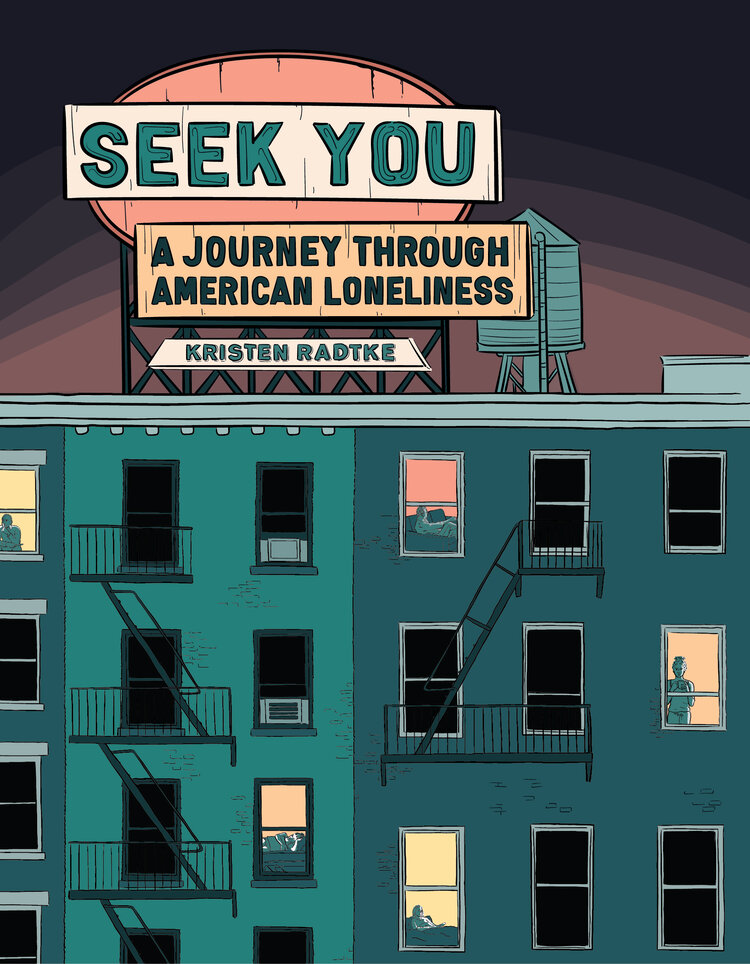
From the acclaimed author of Imagine Wanting Only This—a timely and moving meditation on isolation and longing, both as individuals and as a society.
There is a silent epidemic in America: loneliness. Shameful to talk about and often misunderstood, loneliness is everywhere, from the most major of metropolises to the smallest of towns.
In Seek You, Kristen Radtke’s wide-ranging exploration of our inner lives and public selves, Radtke digs into the ways in which we attempt to feel closer to one another, and the distance that remains. Through the lenses of gender and violence, technology and art, Radtke ushers us through a history of loneliness and longing, and shares what feels impossible to share.
Ranging from the invention of the laugh-track to the rise of Instagram, the bootstrap-pulling cowboy to the brutal experiments of Harry Harlow, Radtke investigates why we engage with each other, and what we risk when we turn away. With her distinctive, emotionally-charged drawings and deeply empathetic prose, Kristen Radtke masterfully shines a light on some of our most vulnerable and sublime moments, and asks how we might keep the spaces between us from splitting entirely.
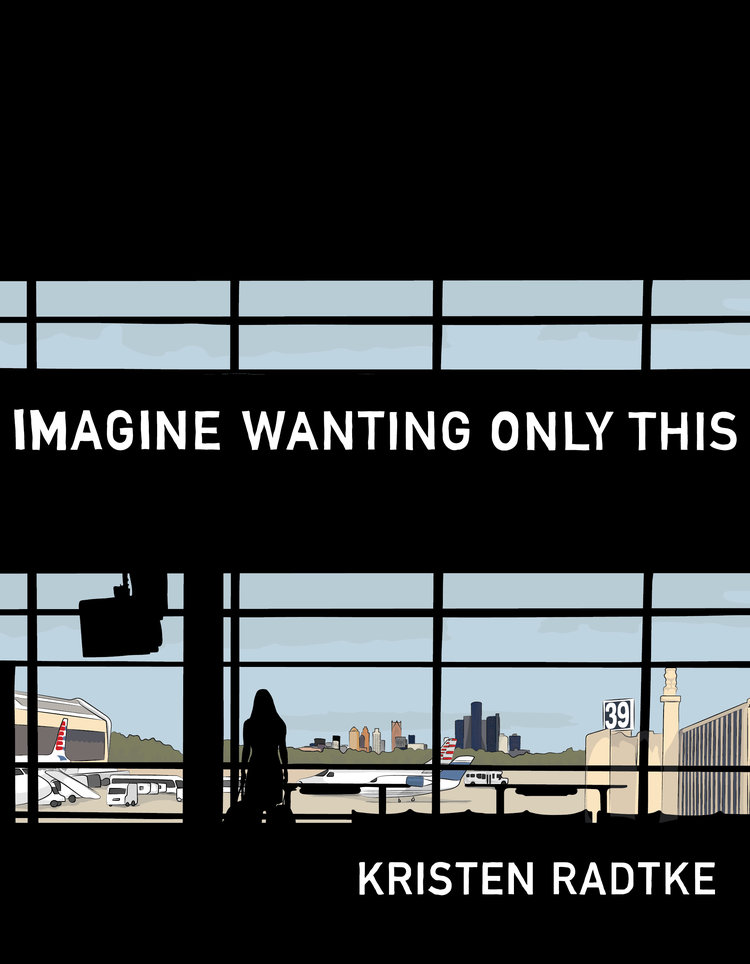
A gorgeous graphic memoir about loss, love, and confronting grief. • “What ultimately
emerges is a portrait of a powerful mind grappling with alienation and loneliness.”
—The New York Times Book Review
When Kristen Radtke was in college, the sudden death of a beloved uncle and the sight of an abandoned mining town after his funeral marked the beginning moments of a lifelong fascination with ruins and with people and places left behind. Over time, this fascination deepened until it triggered a journey around the world in search of ruined places. Now, in this genre-smashing graphic memoir, she leads us through deserted cities in the American Midwest, an Icelandic town buried in volcanic ash, islands in the Philippines, New York City, and the delicate passageways of the human heart. Along the way, we learn about her family and a rare genetic heart disease that has been passed down through generations, and revisit tragic events in America’s past.
A narrative that is at once narrative and factual, historical and personal, Radtke’s stunning illustrations and piercing text never shy away from the big questions: Why are we here, and what will we leave behind?
Books by Lillian-Yvonne Bertram
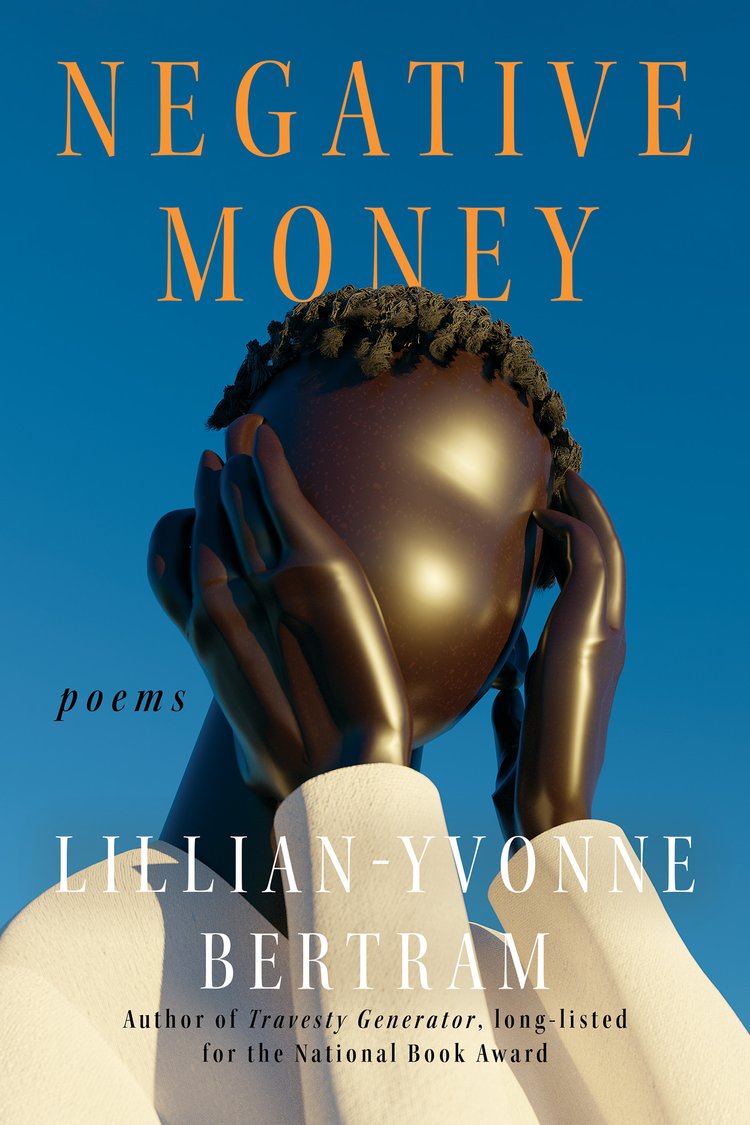
Finalist for the New England Book Award
From a National Book Award nominated poet, this collection is about a life lived in the red, on the edges of great lack and great abundance, of financial and emotional margins
Negative Money follows a speaker continually coming of age while probing the binary thresholds of racial and gender identity, violence and safety, security and precarity, love and loneliness.
For readers of Readers Claudia Rankine, Torrey Peters, Ocean Vuong, and Jericho Brown, NBA nominated Lillian-Yvonne Bertrams’s poems are innovative, conceptually thoughtful work. Through experimentation and muscular lyricism, Bertram maintains a style that observes a speaker’s attempt to understand and exert multiple identities within the binary confines of race and gender.
Playing and gliding from acrostics to sonnets to maps, these compassionate, cerebral, and irreverent poems plainly recognize the larger and potentially escapable oppressive systems that dominate all of our lives by narrating the exhaustion that comes from living under constraining systems of relentless extraction, systems whose powers fracture all attempts at genuine love and intimacy.
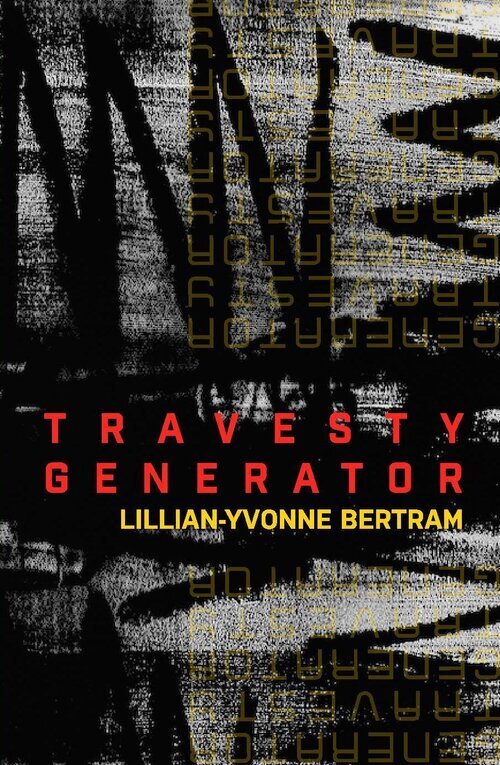
Longlisted for the 2020 National Book Award in Poetry.
The poems here mince no words but instead treat them like notes; staccato on a jazz riff. Or the music of a Phillip Glass piece—pulsing and building so the words and rhythm mesh into your nervous system. The part that makes you tap out a beat helps you remember the words. This is effective as there is so much here we need to remember: African American lives of history makers—Harriet Tubman, Medgar Evers, Malcom X—as well as those lost to violence. Travesty Generator is original and thrilling.
Like a ghost in the machine, Travesty Generator remixes programming codes and turns them to ruminate on the intersections of race and gender. Rhythmic, hypnotic, and percussive, the poems are iterative and suggest the infinite recursions of nano data. The poems pay homage to lives taken too soon, those of Trayvon Martin, Eric Garner, pulls heroes like Harriet Tubman into the present, and offers the wisdoms spoken by Black mothers to their children. Travesty Generator reminds us that programming languages and computer codes are not neutral. But while oppressive algorithms abound, the poems hack their way into new connections and possibilities for Black life.
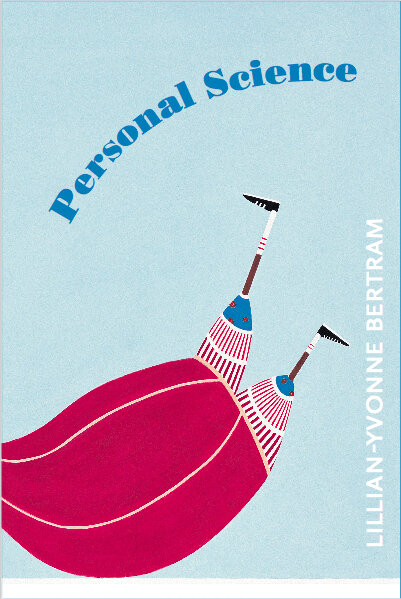
What happens when the imagined life and the stories we tell ourselves become terrifying, given our human ability to inhabit both mental and physical worlds? Bertram’s third full-length collection pivots on an extended piece of creative nonfiction, “Forecast,” which shows how obsessive thinking can begin in actual occurrences that are then exploded in the imagination. The science is personal, as the factual is tinted and stylized, filtered through a self grappling with the difficulty of knowing what is “real.”
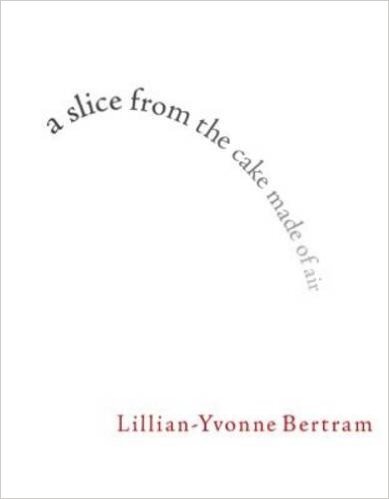
Through a myriad of forms, the poems in a slice from the cake made of air smartly and forcefully confront the blurring intersections of abortion, sexual desire, and contemporary culture.
A slice from the cake made of air processes the physical and mental trauma of abortion coupled with the desires for sexual and emotional love against a backdrop of contemporary culture with all the sexualization that comes with race, gender, and landscape. From front to back the book is wound through with a single poem whose language is permuted, translated, and retranslated (from English to English) as it cycles around abortion, both asking what artifact / do I resemble and stating small love / small / you failed it / in person. The poems directly confront the sexual self (This isn’t a real orgasm, a real patellar fatigue) and take up the thesis abstract as a malleable form for interrogating the inevitable intersections and overlaps of brains and bodies. Sexy and volatile, a slice from the cake made of air winds over and through itself, with no conclusions or solutions for the mess of living in the world.
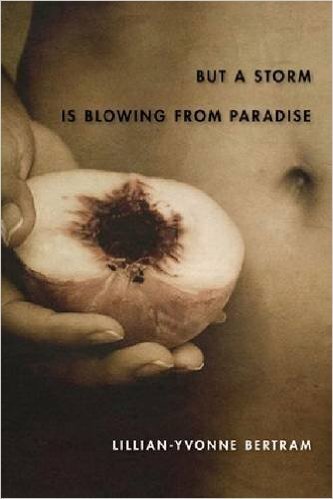
But a Storm is Blowing From Paradise emerges at a time when science is discovering more and more about the mystical particles that make up our universe and our bodies. From tidal forces and prairie burns to ruminations on racial identity while standing at the foot of Mount Rushmore, these poems chart a travelogue through mental and physical landscapes and suggest that place, time, love, and bodies are all shifts in the “undulate cosmos.” Straddling the lyrical and experimental, these poems conjure and connect the cosmological, the carnal, and the personal in a country—and a universe—that is gobbling itself into oblivion. But a Storm is Blowing From Paradise is in love with the universe of language—its forms, its sounds, and even its static.
Books by Eugene Lim
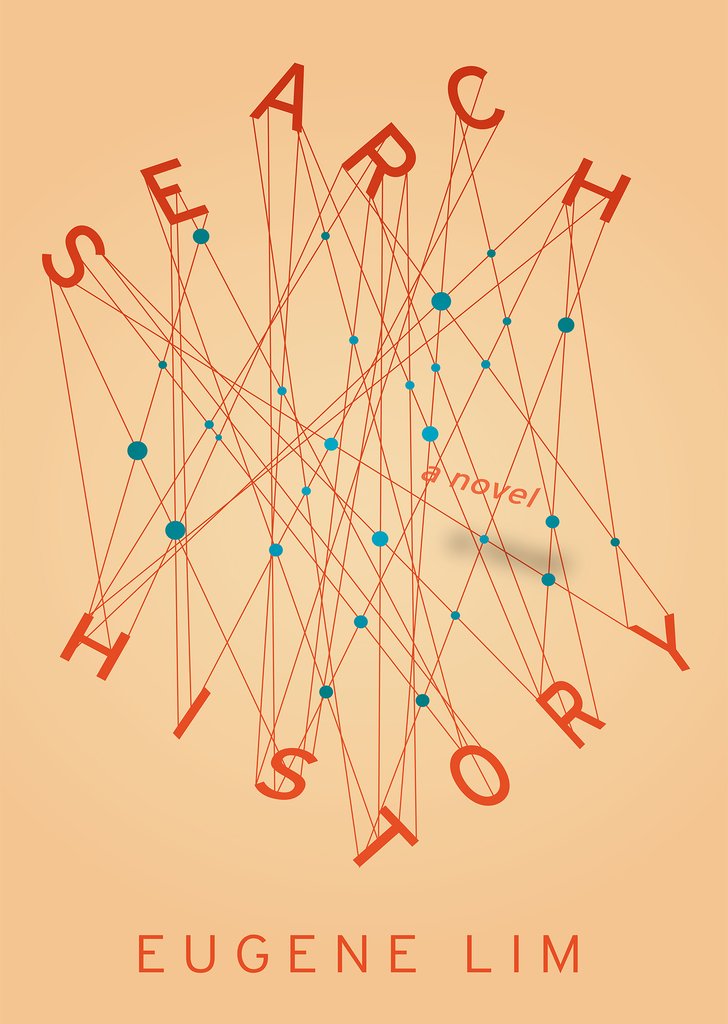
Search History oscillates between a wild cyberdog chase and lunch-date monologues as Eugene Lim deconstructs grieving and storytelling with uncanny juxtapositions and subversive satire.
Frank Exit is dead—or is he? While eavesdropping on two women discussing a dog-sitting gig over lunch, a bereft friend comes to a shocking realization: Frank has been reincarnated as a dog! This epiphany launches a series of adventures—interlaced with digressions about AI-generated fiction, virtual reality, Asian American identity in the arts, and lost parents—as an unlikely cast of accomplices and enemies pursues the mysterious canine. In elliptical, propulsive prose, Search History plumbs the depths of personal and collective consciousness, questioning what we consume, how we grieve, and the stories we tell ourselves.
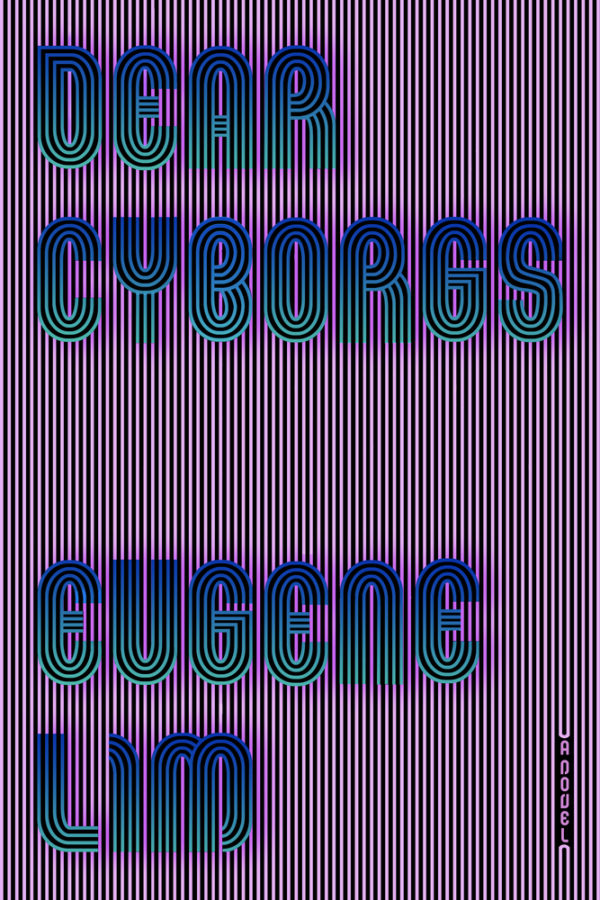
A fractal fable about the possibility and power of protest as told by three superheroes on their lunch break
In a small Midwestern town, two Asian American boys bond over their outcast status and a mutual love of comic books. Meanwhile, in an alternative or perhaps future universe, a team of superheroes ponders modern society during their time off. Between black-ops missions and rescuing hostages, they swap stories of artistic malaise and muse on the seemingly inescapable grip of market economics.
Gleefully toying with the conventions of the novel, Dear Cyborgs weaves together the story of a friendship’s dissolution with a provocative and lively meditation on protest. Through a series of linked monologues, a surprising cast of characters explores narratives of resistance—protest art, eco-terrorists, Occupy squatters, pyromaniacal militants—and the extent to which any of these can truly withstand the pragmatic demands of contemporary capitalism. All the while, a mysterious cybernetic book of clairvoyance beckons, and trusted allies start to disappear.
Playfully blending comic-book villains with cultural critiques, Eugene Lim’s Dear Cyborgs is a fleet-footed literary exploration of power, friendship, and creativity that recalls authors like Tom McCarthy and Valeria Luiselli. Ambitious and knowing, it braids together hard-boiled detective pulps, subversive philosophy, and Hollywood chase scenes, unfolding like the composites and revelations of a dream.
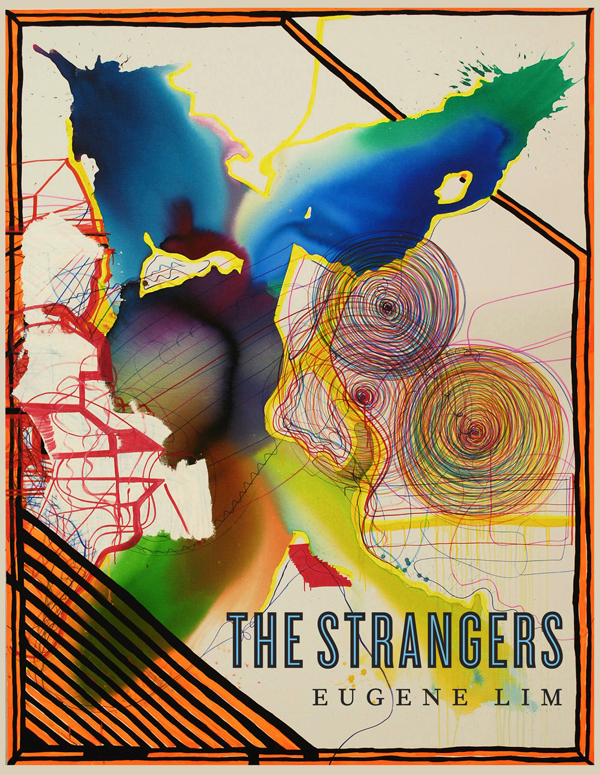
In a paranoid nation on the other side of the world a young man named Noon is caught vandalizing posters of the Beloved President. Nearer by, Oon trawls designer shops hoping to find just-the-right shirt to wear to an upcoming gig. Noona and friends screen their low-budget film at hat shops and dive bars, hoping for a break. And Oona works a missing-persons case on a giant cruise ship. In Eugene Lim’s beautifully bizarre new novel, multiple sets of strange twins explode or drift or otherwise come apart and yet, like entangled quanta, continue to speak impossibly to one another.
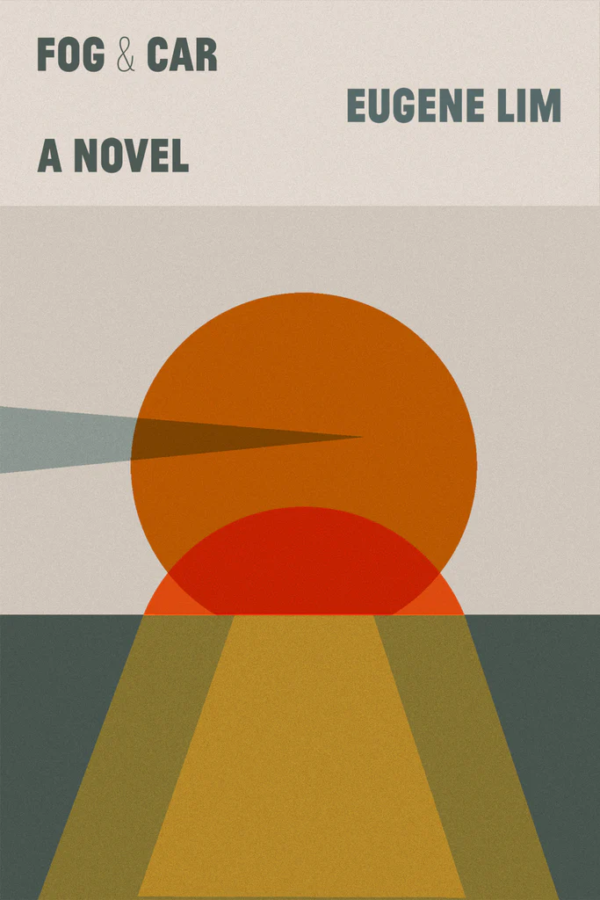
Long out of print, Eugene Lim's wry and haunting debut novel returns to shelves with a new introduction from Renee Gladman and a fresh, reversible cover.
Jim Fog is marooned in a small Midwest town shortly after his divorce, succumbing
to aimless nostalgia. His ex, Sarah Car, has moved to New York City, hoping to skip
right over any mourning period for their marriage. Despite everything, Jim and Sarah
find they're still connected through an old, shared friend. When they both decide
to chase him down, the resulting coincidences and cryptic occurrences culminate in
a trading of souls that blurs the lines between reality and something much stranger.
A moving mystery about loss, grief, and the loneliness of the human condition, Fog & Car was hailed as the arrival of a masterful new voice in American fiction on its initial
publication; now, more than a decade later, it reads as nothing less than prophetic.
Books by Kenzie Allen
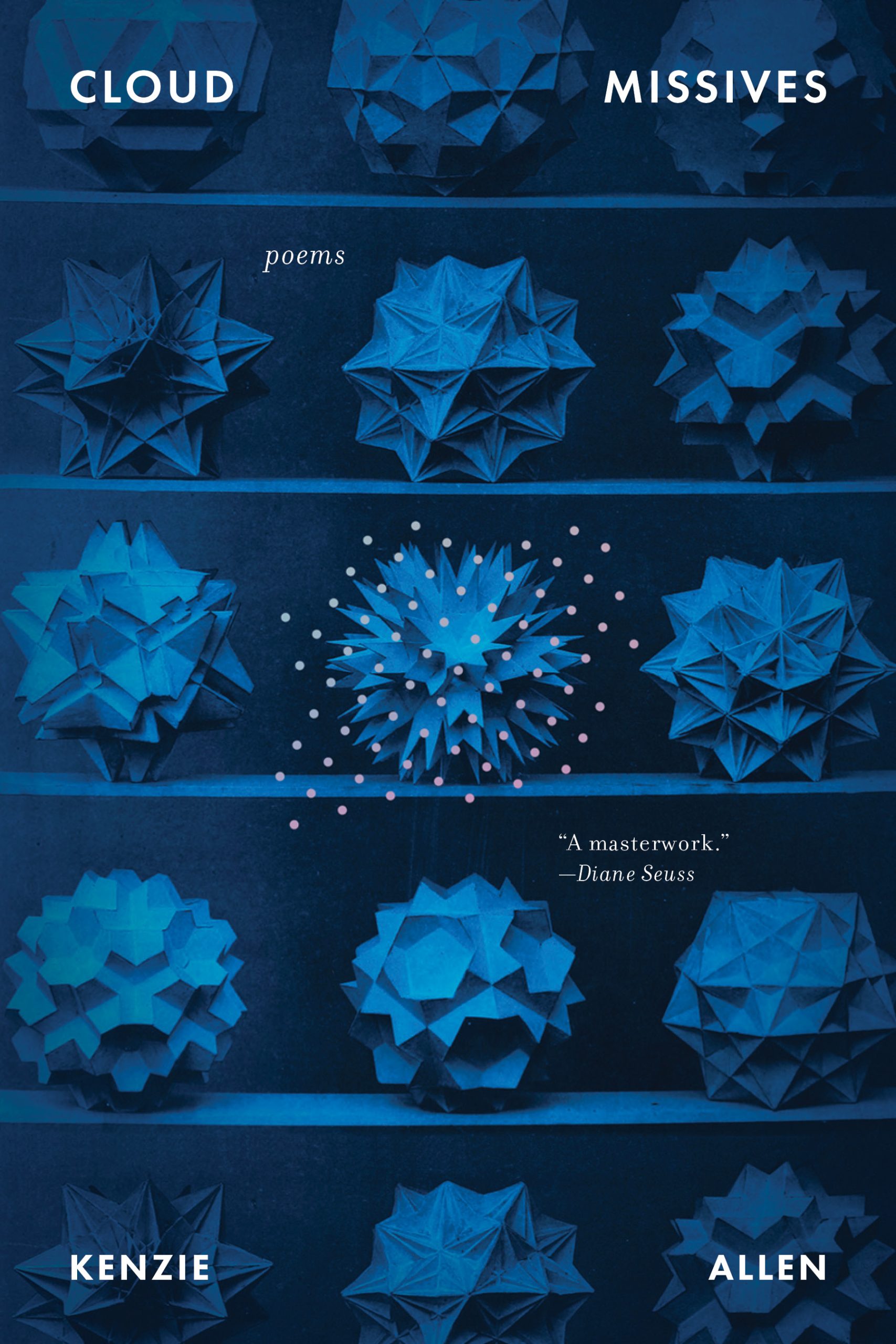
"A masterwork.”
— Diane Seuss
“This incredible debut announces Kenzie Allen as an important voice in Native literature.”
—Craig Santos Perez
Intimate, dissecting, and liberating, Cloud Missives is a poetry collection of excavation and renewal. Like an anthropologist, Kenzie Allen reveals a life from what endures after tragedies and acts of survival. Across four sections, poems explore pop culture—the stereotypes in Peter Pan, Indiana Jones, and beyond—fairy tales, myths, protests, and forgotten histories, before arriving at a dazzling series of love poems that deepen our understanding of romantic, platonic, and communal love.
Cloud Missives is an investigation, a manifestation, and a celebration: of the body, of what we make and remake, of the self, and of the heart. With care and deep attention, it asks what one can reimagine of Indigenous personhood in the wake of colonialism, what healing might look like when loving the world around you—and introduces readers to a profound new voice in poetry.
